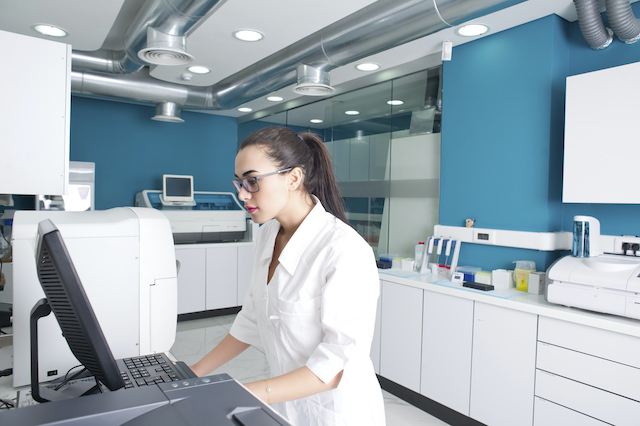
One of the common applications of force testing is figuring out the static load force that causes a component or material to fail or fracture.
Force testing is a big part of material analysis. It is employed to various degrees in any field where the mechanical properties of a component, material, or prototype have to be characterized. One of the common applications of force testing is figuring out the static load force that causes a component or material to fail or fracture. This plays a significant role in the development of any mechanical components. However, variations and inaccuracies in force testing measurements can be minimized by making sure the dynamic load frequencies require some special solutions. Read on to learn which grip you should be picking for force testing in your laboratory!
Wedge Action Grips
These are some of the most commonly used kind of self-tightening grip. Self-tightening groups offer the advantage to close much tighter a force increases continuously to and minimize potential slippage of the specimen during a tensile test. Wedge grips achieve this by virtue of the fact that two wedges are then pulled together as tensile force is applied into the sample. This is advantageous during the testing of any materials that can elongate under tensile load, causing their diameter to decrease. Initial force could be applied by multiple methods such as capstan action wheel, side level, or a screw.
Vice Grips
These are a kind of manually-tightened group which is ideal for flat specimens like plastic film, sheet metal, paper, fabrics, and composites. Vice grips have one simple design, tightened through a thumb screw or T-bar, offering some cost advantages over the sometimes-complicated grip types.
Electronic and Self-Tightening Roller Grips
These are other kinds of self-tightening grip, which are well-suited to tensile testing of flattened samples. Initial tightening is usually performed by lever, and the serrated roller on these grips prevents slippage, which is also prevalent with any malleable samples. Changing the jaw pattern or grip surface is one easy way to further safeguard against slipping. Faces are interchangeable for different specimen materials and dimensions. Serrated faces are suited for plastics, composite materials, and metals. Any serrate V-shaped jaws are suitable for testing wire and tubing. Any softer materials like thin sheets, films, bands, and paper need smooth or rubber-coated surfaces to help minimize slippage while testing.
FOR ALL ISO 17025 CALIBRATION SERVICES, CONTACT LAB PEOPLE TODAY
The Lab People Inc. is a trusted provider of laboratory equipment, services, supplies, and rental equipment for you and your laboratory. As an ISO 17025 accredited service organization, we stand behind our services with 100% satisfaction guaranteed for all of our customers. We offer on-site and off-site calibration services for balances, pipettes, moisture analyzers, force measurement, test weights and more. Services include preventative maintenance, SQ-Min, IQOQ, repairs, legal for trace/placed in service, verification and more.
For more information about how we can assist you, visit our website, email us, or give us a call at 1-800-296-2001!
Do not forget to follow us on Facebook, Twitter, and Linkedin!
